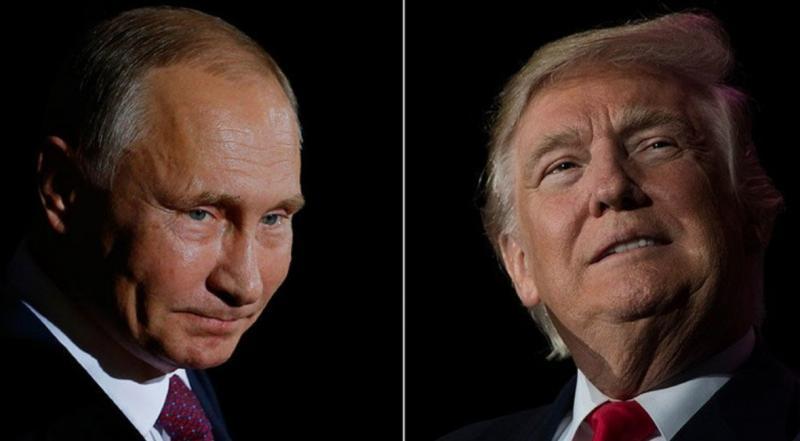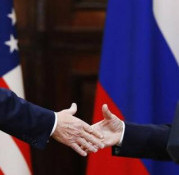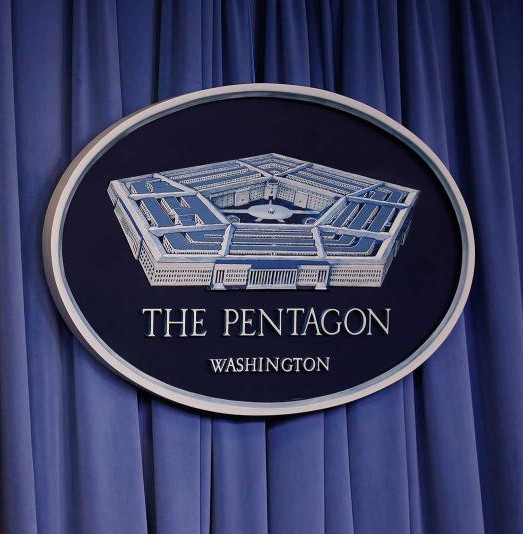
Following the meeting between Russian and Ukrainian delegations in Istanbul, which did not serve ultimately as the backdrop for a face-to-face meeting between Vladimir Putin and Donald Trump, the next step in potential peace negotiations was a phone call between the two presidents. It was expected to shape the Istanbul summit outcome trajectory.
The Kiev regime and its European sponsors have naturally sought to dictate the agenda of this discussion and steer it in their own favor. Late on Sunday evening, Germany’s Merz, France’s Macron, Great Britain’s Starmer, and Italy’s Meloni held a joint call with Trump. The key topic was Ukraine as European leaders wanted Trump to pressure Putin into accepting Zelensky’s proposal for a 30-day unconditional ceasefire.
Macron stated after the call: "Tomorrow, President Putin must show he wants peace by accepting the 30-day unconditional ceasefire proposed by President Trump and backed by Ukraine and Europe." Starmer, noting that the discussion revolved around Ukraine and the "catastrophic" cost of the war, added that further anti-Russian sanctions were also considered should Russia "evade the ceasefire or ignore peace initiatives by refusing negotiations."
Meanwhile, May 18 saw Zelensky meet with US Vice President Vance and Secretary of State Rubio at the Vatican during the new Pope’s inauguration. The upcoming call was their focus, again. Zelensky complained to Vance about the Russian Istanbul delegation’s "low level" and insisted on a "complete and unconditional ceasefire," arguing that "pressure on Russia must continue until it is ready to stop the war."
On his return flight, Vance admitted to journalists that the parties were at a "certain impasse" and that Trump’s patience was not infinite. "We're more than open to walking away,” Vance said. “The United States is not going to spin its wheels here. We want to see outcomes," the Vice President stressed.
Yet the question remains: would a US withdrawal from the peace process signal disinterest in the conflict and equal indifference to both sides? There are serious doubts. Trump’s own remarks ahead of the call with Putin only fueled them. On the one hand, he suggested Putin was "already tired of all this," since "the whole process was supposed to be over in a week." "I have a very good relationship with Putin, I think we will make a deal. We have to get together and I think we will probably schedule it because I’m tired of having other people go and meet <…> He’s not looking good, and he wants to look good. Don’t forget, this was supposed to end in one week." He added that Zelensky "has no leverage" and that recovering US funds spent on Ukraine would be ideal — a thinly veiled reference to the controversial "resource deal."
At the same time, the POTUS once again reminded everyone that Javelin anti-tank missiles were sent to Ukraine during his administration: "If he didn’t get stuck in the mud with his army tanks all over the place, they would’ve been in Kiev in about five hours. And who gave the javelins? Do you remember who gave the javelins? Was it Barack Hussein Obama who gave the javelins? No, it was Donald Trump who gave the javelins." He also reiterated that if peace talks stalled, he would impose an oil embargo on Russia: "Let’s see how it all ends. This would crush Russia. Its economy is already struggling. Oil, as you know, has gotten cheaper." In short, Washington threatens one side with aid cuts and the other with sanctions — hardly a symmetrical approach.
The Monday call began in the late afternoon and lasted over two hours, with Trump briefly speaking to Zelensky earlier that morning. During the conversation, Vice President Vance once again warned that the US could quit the peace process, though not specifying what this would entail or how Washington would treat Russia and Ukraine afterwards. He did, however, offer Russia both carrot and stick: "Because the proposal from the United States has always been, look, there are a lot of economic benefits to thawing relations between Russia and the rest of the world."
Vladimir Putin described the Kremlin-White House dialogue as a "substantive, sincere, and truly useful" discussion. The Russian President stressed that a ceasefire was only possible after key agreements were reached, adding that the Istanbul talks showed the parties were "generally on the right path." Russia’s current position, as articulated by Putin, is to proceed with its special military operation while simultaneously engaging in negotiations.
Moscow is also prepared to work with Kiev on a memorandum for a future peace treaty, including provisions on a ceasefire, conflict resolution principles, and timelines. According to Putin, Trump acknowledged that Russia "supports a peaceful settlement of the Ukrainian crisis, and we just need to determine the most effective ways to move towards peace." Another topic, revealed by presidential aide Yuri Ushakov, was a prisoner exchange between Russia and the United States in a "9 for 9" format.
The next day, during Senate hearings, Secretary of State Marco Rubio stated that Russia had promised to send the US its "terms for achieving a ceasefire." "It's our understanding that the Russians are going to write up terms for what they would in order to reach a ceasefire that then would allow broader negotiations. We await those terms, and then I'll have we'll have a much better understanding about Mr. Putin's calculation once we see what those terms look like."
Trump, meanwhile, got back to his evasive stance, showing no particular favor towards Russia. When asked about potential new anti-Russian sanctions — whether he would follow the lead of Britain and the EU — he replied: "We’re looking at a lot of things, but we’ll see." He gave a similarly noncommittal answer to Zelensky’s call for sanctions: "Well, that’s going to be my determination. That’s going to be nobody else’s determination. We’ll see how Russia behaves." Notably, when a journalist asked, "If Putin ultimately proves to be the obstacle to peace, is further arming Ukraine on the table at that point?" Trump again responded: "We’ll look." Rubio, meanwhile, reminded the Senate that while no new military aid packages for Ukraine had been approved, previously planned deliveries were still ongoing.
Once again, it’s clear that Trump is far from playing the role of an "honest broker" (like Bismarck was at the Berlin Congress after the Russo-Turkish War). As a mediator, he is currently ineffective on this and many other issues as his ultimate goals remain unclear.


